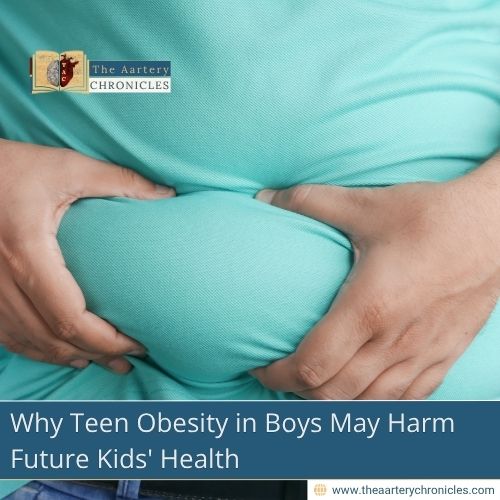

Teen Obesity in Boys May Harm Future Kids’ Health
Summary: Boys who become overweight in early adolescence may unknowingly affect their future children’s health through epigenetic changes. A groundbreaking study shows that teen obesity in males can lead to increased risks of asthma, obesity, and low lung function in their kids, especially daughters, by altering gene expression patterns.
Can Teen Obesity Affect Future Generations? Science Says Yes
Ever wondered if your teenage years could shape the health of your future children? A groundbreaking epigenetic study has revealed a surprising truth: boys who are overweight during early puberty may unknowingly pass on health risks to their children, like
- Asthma
- Obesity
- Poor lung function
This isn’t just about lifestyle. It’s about how being overweight in adolescence can change how your DNA functions, with effects that echo into the next generation.
Let’s explore how early weight gain in teen boys could be altering the genetic blueprint of their future kids.
What the Study Found: Epigenetic Clues in Children’s DNA
Researchers from the University of Southampton and the University of Bergen analysed 339 individuals aged 7 to 51. They assessed fathers’ self-reported body image changes during adolescence to track weight gain.
What they found was startling: over 2,000 epigenetic changes (chemical tags on DNA that affect gene activity) were identified in children whose fathers had been overweight as teens. These changes were linked to:
- Adipogenesis (formation of fat cells)
- Lipid metabolism (how fat is processed in the body)
- Diseases like asthma, obesity, and impaired lung function
“The overweight status of future fathers during puberty was associated with a strong signal in their children’s DNA,” says Dr. Negusse Tadesse Kitaba, lead author and Senior Research Fellow at the University of Southampton.
Why Puberty Is a Critical Window
Sperm development begins in early puberty. This makes it a vulnerable time for environmental and lifestyle factors, like diet and body weight, to alter future sperm DNA through a process called DNA methylation.
“Early puberty seems to be a key window of vulnerability for lifestyle influences to drive epigenetic changes in future offspring,” explains Dr. Kitaba.
Interestingly, the effects were more pronounced in daughters, showing different genes involved in female versus male children.
The Long-Term Public Health Impact
“These findings may be a game-changer in public health intervention strategies,” says Professor Cecilie Svanes, University of Bergen.
Failure to tackle adolescent obesity today could mean multi-generational consequences tomorrow, worsening health inequalities and chronic conditions across communities.
“The results demonstrate concern not only for the health of the population now, but also for generations to come,” adds Professor John Holloway from the University of Southampton and NIHR.
Conclusion: A Wake-Up Call for Parents, Teens & Policymakers
The takeaway? Teenage boys’ health today shapes their children’s future. Early weight gain doesn’t just impact the individual, it may have biological consequences that echo through generations.
By addressing obesity during puberty, we don’t just improve current health, we may also prevent chronic conditions in future children. It’s a call for urgent action in schools, homes, and public health policies alike.
Reference
Negusse Tadesse Kitaba, Toril Mørkve Østergaard, Marianne Lønnebotn, Simone Accordini, Francisco Gómez Real, Andrei Malinovschi, Anna Oudin, Bryndis Benediktsdottir, Francisco Javier Callejas González, Leopoldo Palacios Gómez, Mathias Holm, Nils Oskar Jõgi, Shyamali C. Dharmage, Svein Magne Skulstad, Vivi Schlünssen, Cecilie Svanes, John W. Holloway et al. Father’s adolescent body silhouette is associated with offspring asthma, lung function and BMI through DNA methylation. Communications Biology, 2025; 8 (1)

Dane
I am an MBBS graduate and a dedicated medical writer with a strong passion for deep research and psychology. I enjoy breaking down complex medical topics into engaging, easy-to-understand content, aiming to educate and inspire readers by exploring the fascinating connection between health, science, and the human mind.








